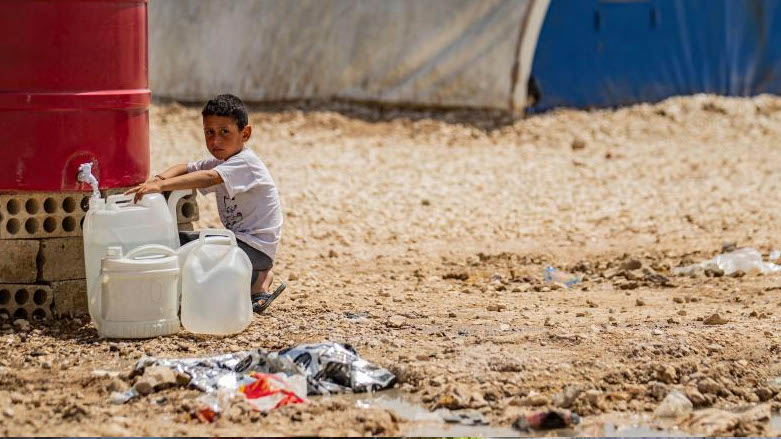Northeastern Syria is witnessing a surge in cholera infections and deaths: STJ
"Syria’s vulnerable infrastructure and poor resources, weakened over years of war, are affecting its ability to contain the disease."

ERBIL (Kurdistan 24) – Hundreds of cholera infections have been reported due to the contamination of the Euphrates — the main source of drinking water for more than five million people, the human rights organization Syrians for Truth and Justice (STJ) said in a report on Friday.
"Syria’s vulnerable infrastructure and poor resources, weakened over years of war, are affecting its ability to contain the disease, which is becoming a serious threat to Syria and neighboring countries as the disease multiplies in an environment conducive to its spread," the report said.
Since the onset of the disease in areas along the Euphrates last August, the infections have risen daily, now exceeding a thousand cases, the report added.
According to a recent report of the UN Office for the Coordination of Humanitarian Affairs and World Health Organization (WHO) between 25 August and 8 October, 15,823 suspected cases have been reported in Syria including 68 deaths.
It said the most affected Syrian governorate include Deir-ez-Zor (8,940 cases, 56.5 %), Ar-Raqqa (3,325 cases, 21%), Aleppo (2,411 cases, 15.2%), Al-Hasakeh (841 cases, 5.3%). Three of these provinces are under control of the Syrian Democratic Forces control.
The UN has earlier urged the concerned parties to take urgent measures to contain the disease and ensure sustainable and unimpeded access to affected communities.
Moreover, the United Nations Resident and Humanitarian Coordinator in Syria, Imran Riza, earlier said “source of infection is believed to be linked to people drinking unsafe water from the Euphrates River and using contaminated water to irrigate crops, resulting in food contamination.”
On 21 September, the co-chair of the Health Authority of the Autonomous Administration, Joan Mustafa, stated during a press conference that the "polution of the Euphrates was a result of its water’s significant receding and decline."
"It has turned into swamps in several areas, and this has led naturally to the contamination of the vegetables irrigated with Euphrates water.”
A medical source in al-Kasra Hospital in Deir ez-Zor told STJ that first week in September fter the detection of the first cholera case was very hectic.
"Since cholera is of an epidemic nature, it spread rapidly in the al-Kasra area. Within the first three days, there was an explosive outbreak of the disease among the population of the western line of Deir ez-Zor."
"We took samples from the Euphrates River seven days following the onset of cholera. Examinations confirmed that the Euphrates was contaminated with cholera. We took samples from the drinking fountains in the villages of al-Kasra, al-Jinynah, and As Sawa as well, and they all tested positive for the bacterium causing the disease."
"This confirms without a doubt that contaminated water is behind the spread of the disease,” the source concluded.